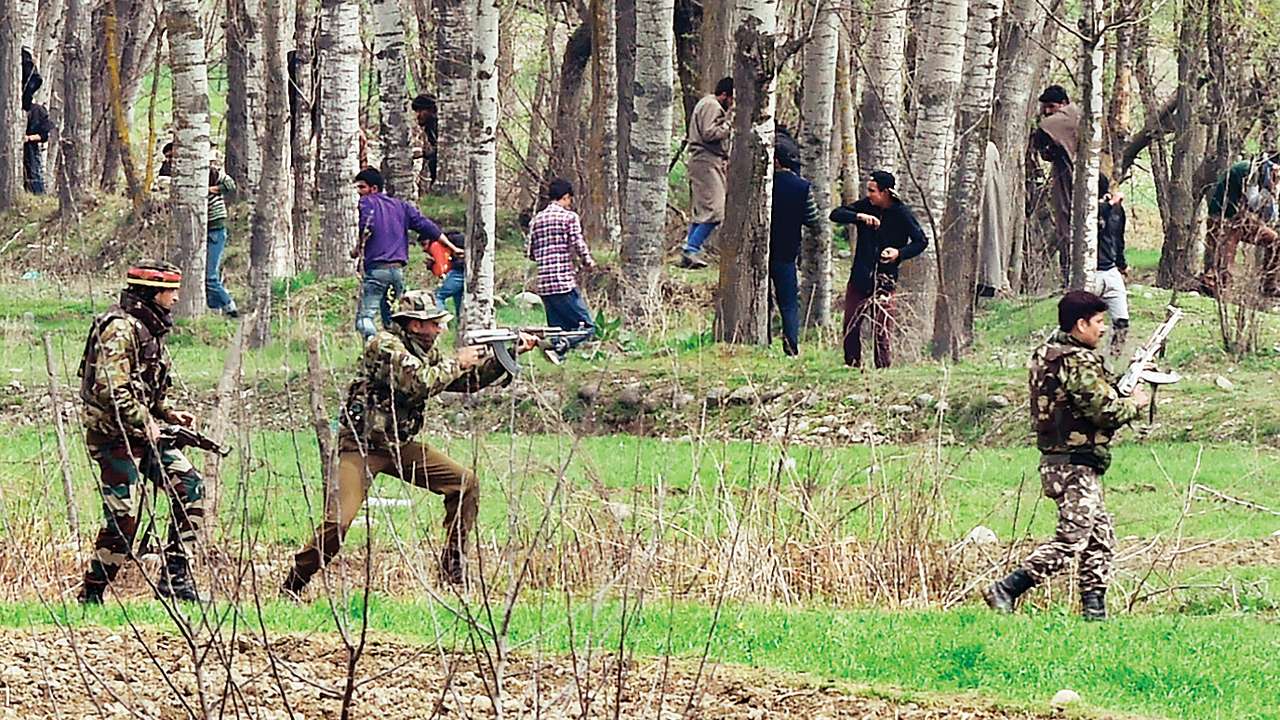
The provisions of the Armed Forces Special Powers Act (AFSPA) are applicable in certain parts of J&K and the northeastern states. In the recent past, certain human rights activists have created scuttlebutt and misconceptions about the AFSPA and the functioning of the members of the armed forces under this law. Some of these are:
These views have influenced the international community into believing that armed forces personnel have become ‘monsters’ under the excessive powers given to them by the ‘draconian’ Act and that the rule of law has ended. However, this is not the reality.
Since the advent of militancy in J&K in 1990, nearly 14,000 civilians and 5125 security forces personnel have lost their lives (till 31 December 2017). This year, 51 terrorists have been killed and 27 soldiers have laid down their lives. As for the northeast, the situation is improving gradually. The year 2017 recorded the lowest insurgency incidents and casualties among civilians and security forces during the last two decades since 1997. While insurgency has been wiped out from Tripura and Mizoram, there has been a marked improvement in security situation in Assam, Meghalaya, Nagaland and Manipur. The AFSPA has been removed completely from Meghalaya and in Arunachal Pradesh it is restricted to six police stations.
Every State has the right to defend itself; the right is inherent in the concept of the State. The State has the responsibility to safeguard the rights of the citizens and provide protection to those vulnerable. One must remember that the AFSPA is invoked by the government after notifying the area as “disturbed” because the state government is unable or incompetent to handle the unrest. In such a situation, if the AFSPA is invoked and the armed forces are deployed, they need special legal protection and special powers for operational efficiency. Once soldiers are deployed to quell domestic violence, they must be empowered by the law to use lethal force, shoot down domestic enemies, arrest and interrogate civilians involved in unlawful activities, raid premises and seize documents. Every country in the world where the armed forces have been deployed to counter domestic disturbance provides similar powers and protection to its armed forces.
In India, the instructions issued to the military commander are explicit and comprehensive. They provide that in case commanders decide to open fire, they must: (a) give warning in the local language that the fire will be effective; (b) attract attention before firing by bugle or other means; (c) control fire by issuing personal orders on both the ‘number of rounds’ to be fired and the ‘object to be aimed’ at; (d) cease firing immediately once the object has been attained; (e) take immediate steps to secure the wounded; and (f) ensure a high standard of discipline. The aim is to ‘injure and incapacitate’ rather than kill. While engaging in counter-insurgency operations, the Indian armed forces have been guided by the principles of ‘minimum force’ and ‘proportionality’.
In the case of the Naga People’s Movement of Human Rights v. Union (1998), the Supreme Court held that the powers conferred on the officers and NCOs under the AFSPA are not arbitrary and unreasonable, and are not violative of the provisions of Articles 14, 19 and 21 of the Constitution. Thus, there are ample safeguards to prevent the wanton abuse of power under the AFSPA. The AFSPA does not grant immunity to members of the armed forces. Section 6 of the Act only requires that permission be taken from the Central Government before prosecution to prevent the filing of “frivolous claims”.
The Central Government had appointed a five-member committee headed by Supreme Court Judge BP Jeevan Reddy to examine whether the AFSPA is required. The report submitted by the committee in 2005 has not been made public, but various NGOs have selectively quoted a portion of it: “….for whatever reasons, [AFSPA] has become a symbol of oppression, an object of hate and an instrument of discrimination and high-handedness.” However, other portions of the report are never discussed: “...though an overwhelming majority of the citizen groups and individuals pleaded for the repeal of the Act, they were firmly of the view at the same time that the Army should remain to fight the insurgents.”
The Indian armed forces have established a proud and enviable record of compliance with international standards, to which their military manual by and large conforms. They have participated in nearly 70 UN peacekeeping missions and have been lauded for their humane treatment of civilians the world over.
The author is a retired Wing Commander and the views are personal